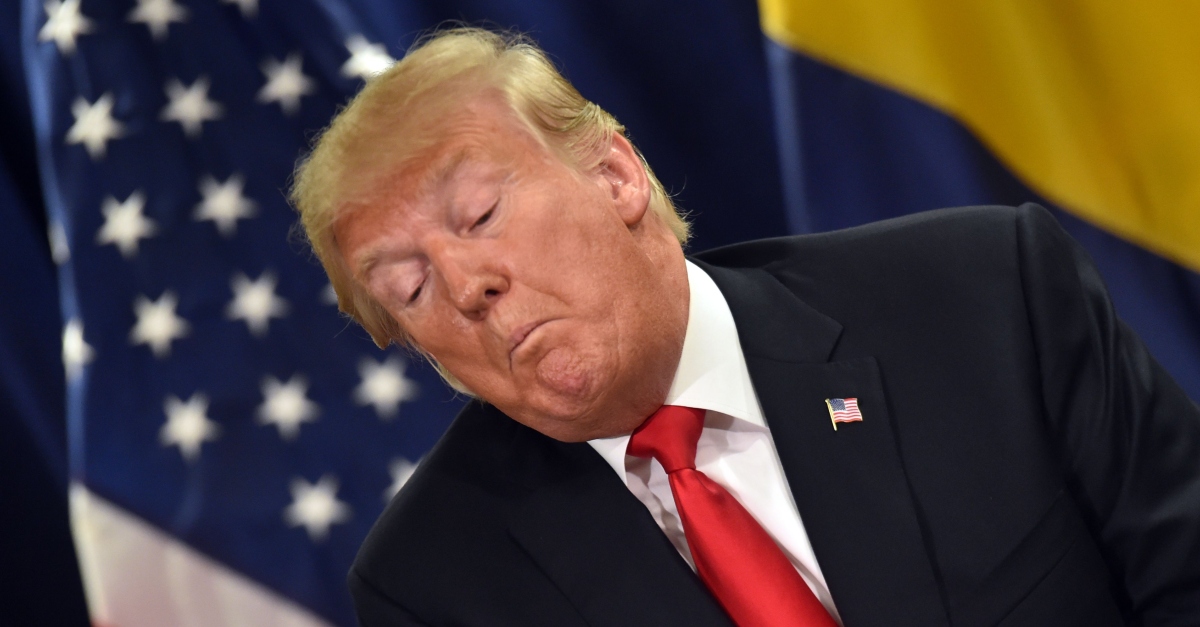
Lawyers for President Donald Trump will argue their case on Wednesday afternoon to quash congressional subpoenas issued to Deutsche Bank. The subpoenas were issued by the House’s Financial Services and Intelligence Committees as part of the long-promised investigation into the business dealings of Trump and his family members.
From a purely procedural standpoint, this hearing is already unusual. Typically, efforts to quash subpoenas are led by the person or organization to which the subpoena was actually issued; not here, though. The House issued the subpoena against the bank, and any impact to Trump is collateral damage. But Deutsche Bank has not challenged the subpoena directly – an unusual and potentially disloyal move by a financial giant on behalf of one of its biggest clients.
Perhaps, though, there’s something of a backstory to Deutsche’s decision not to align with the president. Earlier this week, the New York Times reported the story of Deutsche whistleblower Tammy McFadden, an anti-money-laundering specialist who alerted the bank upon finding that Jared Kushner had made some questionable transaction with Russians. According to McFadden and others who have verified the account, the bank concealed reports about Kushner’s suspicious activity in an effort to keep business relations strong with the Trump family.
It would seem that Trump and Deutsche Bank both stand to be exposed by production of the financial records requested by Congress, but instead of creating a united front, the two now find themselves on opposing sides of federal litigation.
Maybe, though, Deutsche just doesn’t want to start a battle it can’t win. The legal arguments to quash raised by Trump are tenuous at best, and the recent ruling in another similar case does not bode well for the president. On May 20, Judge U.S. District Judge for the District of D.C. Amit Mehta rejected Trump’s attempt to block a subpoena against Mazars USA, his accounting firm, in a case that mirrors the Deutsche Bank litigation.
Attorney Richard Roth, founder and partner at the Roth Law Firm, PLLC, told Law&Crime what Deutsche Bank is probably thinking and why.
“While typically a bank does stand behind its customer, there are two reasons why Deutsche Bank is staying silent. The first, and less obvious, is that when a motion is made to quash (or deny) the subpoena, banks generally sit back to allow the parties to fight and await the result,” Roth said. “But in this instance, the issues are more serious. Essentially, we have a very public dispute between the legislative and executive branches of government, which no bank wants to takes side in.”
House Democrats were quick to send along the potentially persuasive ruling to Judge Edgardo Ramos, who will be presiding over Wednesday’s hearing. Judge Mehta issued a 41-page ruling that bluntly pointed out:
It is simply not fathomable that a Constitution that grants Congress the power to remove a president for reasons including criminal behavior would deny Congress the power to investigate him for unlawful conduct — past or present — even without formally opening an impeachment inquiry.
While the ruling of one district court is not controlling precedent on another, Judge Mehta’s rationale is tough to dispute. In court documents in the Deutsche case, Trump’s primary argument was that as a legislative agency, Congress lacks the power to initiate an investigation that would necessitate these subpoenas. As Law&Crime explained before, that argument lacks some basic logic. Congress certainly has the power to impeach – impeachment is a non-legislative, quasi-prosecutorial, and undeniably political process; the power to investigate isn’t exactly a stretch.
President Trump has already given his opinion on Judge Mehta’s unfavorable ruling, saying, “It’s totally the wrong decision by, obviously, an Obama-appointed judge.” Judges Mehta and Ramos were appointed by President Barack Obama to the U.S. District Courts of D.C. and Southern District of New York, respectively.
[image via Nicholas Kamm/AFP/Getty Images]